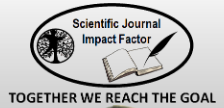Fairytales, Disabilities and Social Consciousness: Readings in Amanda Leduc’s Disfigured: On Fairy Tales, Disability, and Making Space
DOI:
https://doi.org/10.59136/lv.2023.1.1.102Keywords:
Disability Studies, Fairytales, Representation, Literature, Children LiteratureAbstract
In this paper, the focus is on the study of representation of disabilities in fairytales vis-à-vis an indepth study of Amanda Leduc’s Disfigured: On Fairy Tales, Disability, and Making Space (2020), and how the representation shapes and affects our social consciousness about people with difficulties. In Disfigured, Amanda Leduc describes her life with cerebral palsy and her obsession with fairytales that began at an early age and continues today. Amanda describes of being both drawn to and repulsed by fairytales, aching for those happily ever afters and slowly realising how problematic those endings in fairytales are. By examining the ways that fairy tales have shaped our expectations of disability, Leduc emphasises the need for a new world order where disability is no longer a punishment or impediment but operates, instead, as a way of centering a protagonist or person and helping him/her to cement a place in a story, and from there, the world. Through the book, she ruminates on the connections we make between fairy tale archetypes, and tries to make sense of them through a twentyfirst-century disablist lens.
Downloads
Downloads
Published
Issue
Section
License

This work is licensed under a Creative Commons Attribution-NonCommercial 4.0 International License.




